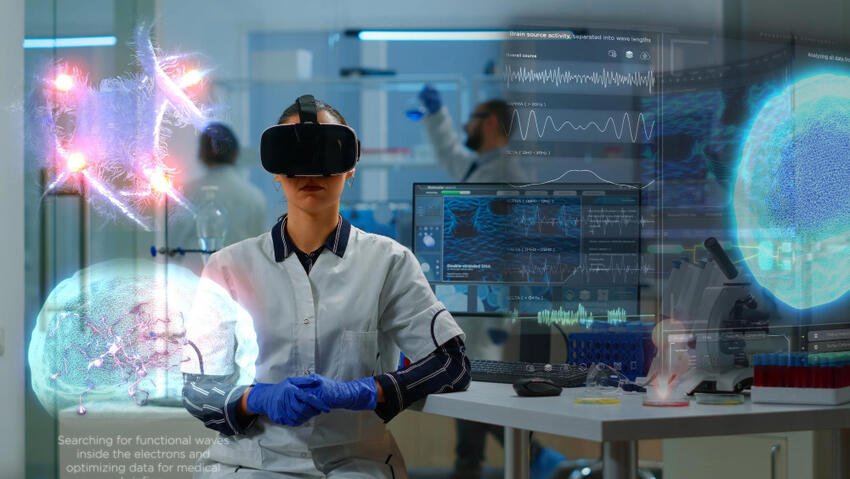Okay, so picture this: a hospital is filled with patients, doctors, nurses, and all kinds of machines that help keep people alive. Everything feels super safe, right? But there’s one big problem hiding in plain sight—hackers. Yep, the same people who break into computers and steal info are now going after hospitals. And it’s not just about stealing money. It’s way more serious than that.
Hospitals Are Easy Targets
One of the biggest reasons hackers go after hospitals is because many of them are not great at cybersecurity. That means their computer systems, networks, and devices aren’t protected well enough. Some still use old software, weak passwords, or don’t update their systems often. Hackers love that. It’s kind of like finding a house with the front door wide open—just waiting for someone to walk in.
Also, hospitals are under a lot of pressure. They have to care for patients 24/7, keep up with paperwork, handle emergencies, and manage tons of data. That makes it easy for cybersecurity to get pushed down the list. Hackers know this. And they take advantage of it.
What Hackers Want from Hospitals
You might wonder what hackers even get from going after a hospital. The answer? A lot. Hospitals store some of the most valuable personal information out there. Things like medical records, insurance info, Social Security numbers, and even credit card data. That kind of stuff sells for a ton of money on the dark web.
But it doesn’t stop there. Hackers sometimes don’t just steal—they freeze systems and demand payment to unlock them. It’s called a ransomware attack. Imagine doctors not being able to see patient charts or use machines during surgery. That’s terrifying. And sadly, it happens more often than people think.
The Role of Medical Devices
Now here’s where it gets even scarier. Many hospitals use devices that connect to the internet. Things like insulin pumps, heart monitors, ventilators, and even imaging machines can be online. These tools are super helpful for doctors and nurses, but they also open new doors for hackers.
That’s why medical device cybersecurity is such a big deal. If a hacker gets into a medical device, it’s not just about stealing data anymore—it’s about risking someone’s life. Imagine a pacemaker being controlled by someone who shouldn’t have access to it. Or a machine delivering the wrong dose of medicine. That’s not science fiction. It’s real.
Companies that focus on medical device cybersecurity help stop this from happening. They make sure devices are protected with strong passwords, software updates, and secure connections. They also teach hospital staff how to spot threats and report anything weird.
Real-Life Examples
There have been some scary situations in real life. A few years ago, a hospital system in the U.S. was hit by ransomware, and it shut down computers in over 400 locations. Nurses had to write everything on paper, and patients had to wait for care. It was total chaos.
In another case, researchers showed how they could hack into an insulin pump and change the dosage. Thankfully, that was just a test—but it proved how dangerous weak cybersecurity can be.
Why Hospitals Pay the Ransom
Here’s something that might sound strange: a lot of hospitals actually pay the hackers to get their systems back. Why? Because they don’t have time to waste. If a system is down, patients could get hurt. And even though experts say never to pay ransom, hospitals sometimes feel like they have no choice. They need their systems up and running now—not in a week or two.
But paying doesn’t always solve the problem. It just makes hospitals more of a target because hackers know they’re willing to pay. That’s why prevention is so important.
What Hospitals Can Do
The good news is, there are things hospitals can do to stop hackers before they strike. First off, they need to update their software. A lot of hacks happen just because systems are old and haven’t been patched.
Next, training staff is huge. Even a simple email with a fake link can let hackers into the system. If nurses and doctors know what to watch for, they’re way less likely to click something dangerous.
Hospitals also need backup plans. That means saving copies of data in safe places, so if one system goes down, there’s a backup ready to go. And, of course, working with experts who understand medical device cybersecurity is a must. These pros can help find weak spots and fix them before it’s too late.
What We Can Do
Even if you’re not a doctor or a nurse, there are ways to help. If someone in your family works in healthcare, remind them to be careful online. If you’re visiting a hospital, don’t plug your phone into random USB ports—they can be a risk too.
And if you use any kind of personal medical device at home, like a smart glucose monitor or fitness tracker, make sure it’s set up safely. Use strong passwords, update the software when it asks, and don’t share private info online.
A Problem We Can’t Ignore
The truth is, hackers will probably always try to go after hospitals. But that doesn’t mean they have to win. Every time a hospital updates its systems or learns how to stop an attack, it makes things harder for the bad guys.
And every time someone speaks up about medical device security, it pushes more companies to take action. This stuff really matters—because it’s not just about keeping computers safe. It’s about keeping people safe. People who are sick, people who are healing, and people who are doing everything they can to help others feel better.
What to Remember
Hospitals are easy targets because they’re busy and not always prepared for digital threats. Hackers go after them for personal data, money, and sometimes just to cause chaos. And when medical devices are online, the risks get even bigger.
But there are ways to fight back—better training, updated systems, and stronger cybersecurity all make a huge difference. Medical device cybersecurity, in particular, is something every hospital needs to take seriously.
So yeah, hackers may love hospitals—but they don’t have to get what they want.
Read Dive is a leading technology blog focusing on different domains like Blockchain, AI, Chatbot, Fintech, Health Tech, Software Development and Testing. For guest blogging, please feel free to contact at readdive@gmail.com.





